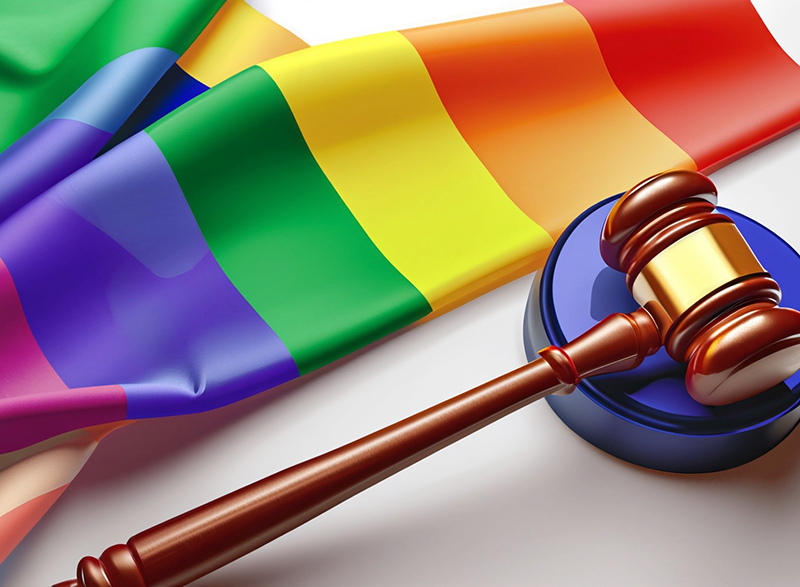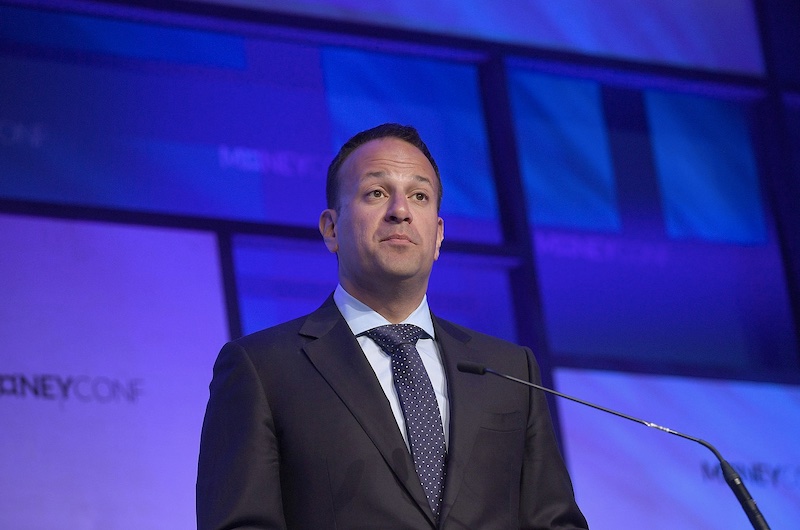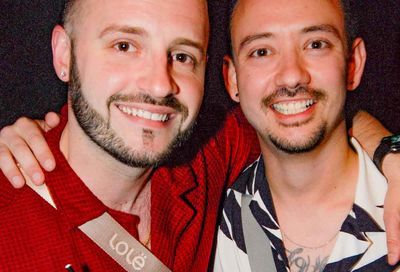Chile becomes 31st country to legalize gay marriage
Recently approved measure, passed by overwhelming margins, will be signed into law just before the country elects a new president.

On Tuesday, lawmakers in Chile voted to legalize marriage equality, making the South American nation the 31st country to recognize same-sex couples’ relationships as valid.
The bill to legalize marriage equality passed by overwhelming margins in both chambers of the country’s Congress. The bill grants same-sex partners parental rights over the biological or adopted children of their spouse, and creates rules regarding inheritance and other financial matters.
The vote comes ahead of a general election that is expected to be bitterly contested, with social issues like LGBTQ rights likely to be used as a wedge issue.
Chile has long been considered a more conservative country, especially when compared to its neighbor Argentina — which legalized same-sex nuptials in 2010 — with even left-wing politicians choosing not to back the practice until recently. The country only overturned its laws criminalizing consensual same-sex relations in 1999, and legalized divorce in 2004.
In 2010, Chilean lawmakers proposed a civil union law for unmarried same-sex couples, but were reticent to legalize full marriage rights or grant same-sex couples the right to adopt children, notes the New York Times.
That same year, a gay couple raising two children, César Peralta and Hans Arias, asked for a marriage license at a government office in Santiago, knowing they’d be rejected. With the help of Movilh, an LGBTQ organization, they sued for the right to be married.
In April 2012, Chile’s Supreme Court ruled against Peralta and Arias. Movilh then sued the country before the Inter-American Commission on Human Rights. While the case was being litigated, in 2015, Chile passed a civil unions law, but it did not grant same-sex couples all the rights and responsibilities of marriage, such as the ability to adopt. Chile ultimately negotiated with the commission, agreeing to set in motion a process to legalize marriage equality.
Tuesday’s vote was bolstered by support from President Sebastián Piñera, a longtime opponent of same-sex marriage who recently came out in favor of it in June, saying at the time: “I think we need to reflect on the value of freedom, including the freedom to love and build a family with a loved one.”
Piñera urged Congress to prioritize a marriage equality bill, which he will sign into law ahead of the Dec. 19 presidential, parliamentary, and regional elections. The two leading candidates — Gabriel Boric, a leftist former student activist, and José Antonio Kast, a far-right former congressman — have conflicting views on the issue, as well as a host of other policies.
Taking a page from the right-wing playbook and echoing Brazilian President Jair Bolsonaro, Kast reaffirmed his opposition to same-sex marriage as he attempts to court socially conservative evangelical voters to his side.
“We respect democracy, but that doesn’t mean we change our convictions,” he said. “For us, marriage is between a man and a woman.”
See also: Switzerland voters approve same-sex marriage in landslide victory
But Rolando Jiménez, one of the leaders of Movilh, said that massive demonstrations in recent years showed that the conservative political class has largely been out of step with the majority of Chileans on a number of issues.
For instance, in 2019, thousands took to the streets to demand societal and policy changes, including an overhaul of the country’s Constitution — which dated back to the Pinochet dictatorship of the late 1970s and early 1980s — and a rewriting of laws to better address economic inequality, the cost of living, and various social rights. Lawmakers eventually conceded, setting up a plebiscite in which 78% of Chileans voted to rewrite the country’s laws.
“The political class had been deaf, blind and mute regarding a series of matters on which civil society and ordinary Chileans had advanced,” Jiménez said, pointing to same-sex marriage as just one example where politicians have lagged behind public opinion.
In addition to Chile and Argentina, same-sex nuptials are recognized in Brazil, Colombia, Ecuador, Uruguay, Costa Rica, and 24 of Mexico’s 32 states, meaning a majority of Latin America’s population lives in countries where such unions are legal.
Read our other coverage:
Acceptance reduces suicide risk among intersex youth by more than 50%
Jeopardy! champ Amy Schneider reveals how Shakespeare helped her come out as transgender
Former middle school principal claims she was demoted for refusing to take down Pride flag
Support Metro Weekly’s Journalism
These are challenging times for news organizations. And yet it’s crucial we stay active and provide vital resources and information to both our local readers and the world. So won’t you please take a moment and consider supporting Metro Weekly with a membership? For as little as $5 a month, you can help ensure Metro Weekly magazine and MetroWeekly.com remain free, viable resources as we provide the best, most diverse, culturally-resonant LGBTQ coverage in both the D.C. region and around the world. Memberships come with exclusive perks and discounts, your own personal digital delivery of each week’s magazine (and an archive), access to our Member's Lounge when it launches this fall, and exclusive members-only items like Metro Weekly Membership Mugs and Tote Bags! Check out all our membership levels here and please join us today!
























